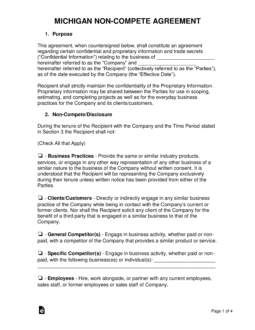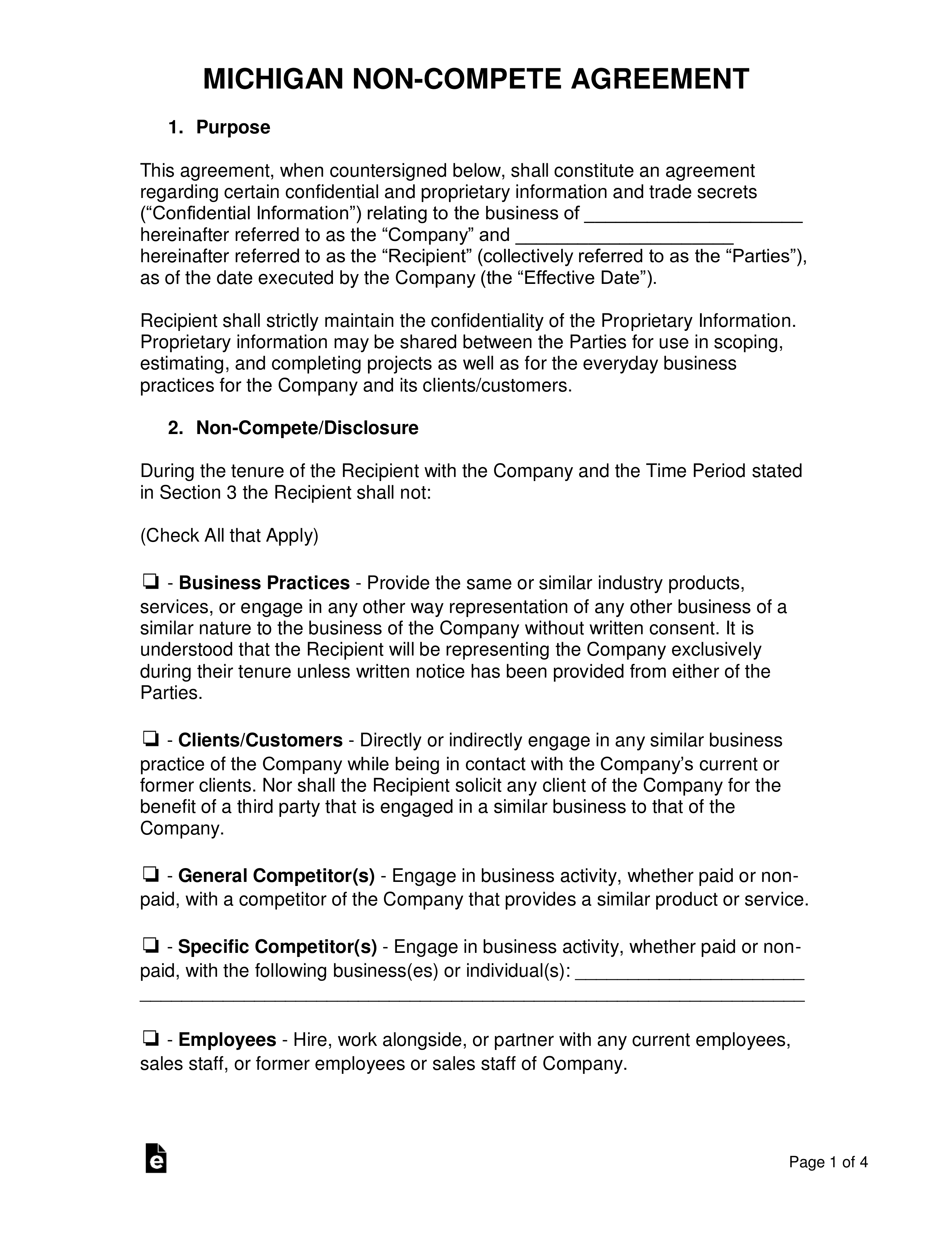Updated March 01, 2024
A Michigan non-compete agreement prohibits an employee from engaging in the same line of business after termination of employment. This allows the employer to protect its competitive business interests, such as trade secrets and confidential information. The agreement must include a reasonable duration and geographical area to be enforceable.
Laws
Legally Enforceable?
Yes, a non-compete is legally enforceable in Michigan if it is “reasonable as to its duration, geographical area, and the type of employment or line of business.”[1]
Sale of a Business
A non-compete as an ancillary to the sale of a business is allowed and viewed more favorably than those made with employees.[2]
Attorneys (prohibited)
An attorney may not be able to enter into a non-compete agreement that restricts their ability to practice law.[3]
Continued Employment
If an employee is at-will, then continued employment will be sufficient consideration for a non-compete. However, if an employee is tied to a fixed-term contract, then the court will determine that no consideration has been presented.[4]
Maximum Term
The geographical area and duration are viewed together to determine whether they are reasonable. The courts have ruled that 6 months to 3 years is legitimate.[5]
No Geographical Area Mentioned
If the employer is conducting business in multiple States and/or foreign countries, the “restriction that is not limited in its geographic scope is not necessarily unreasonable.”[5]
Blue Penciling
Michigan statutes enable courts to limit and render a non-compete to be made reasonable if, in any respect, is found to be unreasonable.[6]


